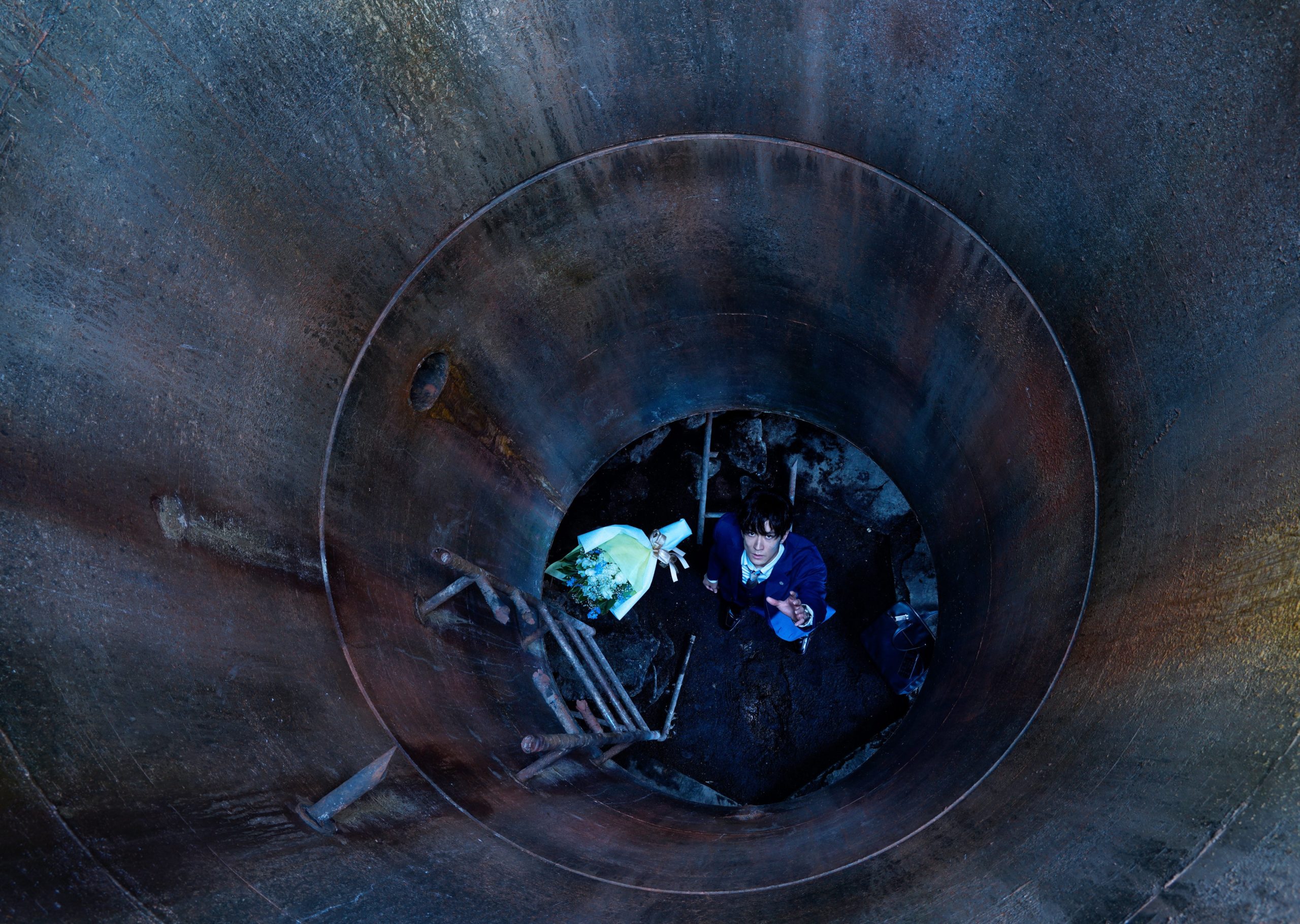
This situational thriller tells the story of a man stuck in a manhole on the eve of his wedding day and his desperate efforts to get out.
By CHIN JIAN WEI
The Japanese Film Festival 2023 begins today, with over 16 movies encompassing a variety of genres. For a limited time only, Malaysians can enjoy a fine selection of Japanese cinema. BASKL had the chance to watch #Manhole during a press screening. If this movie was any indication of the overall quality of the selected films, audiences are likely to find much to enjoy this festival.
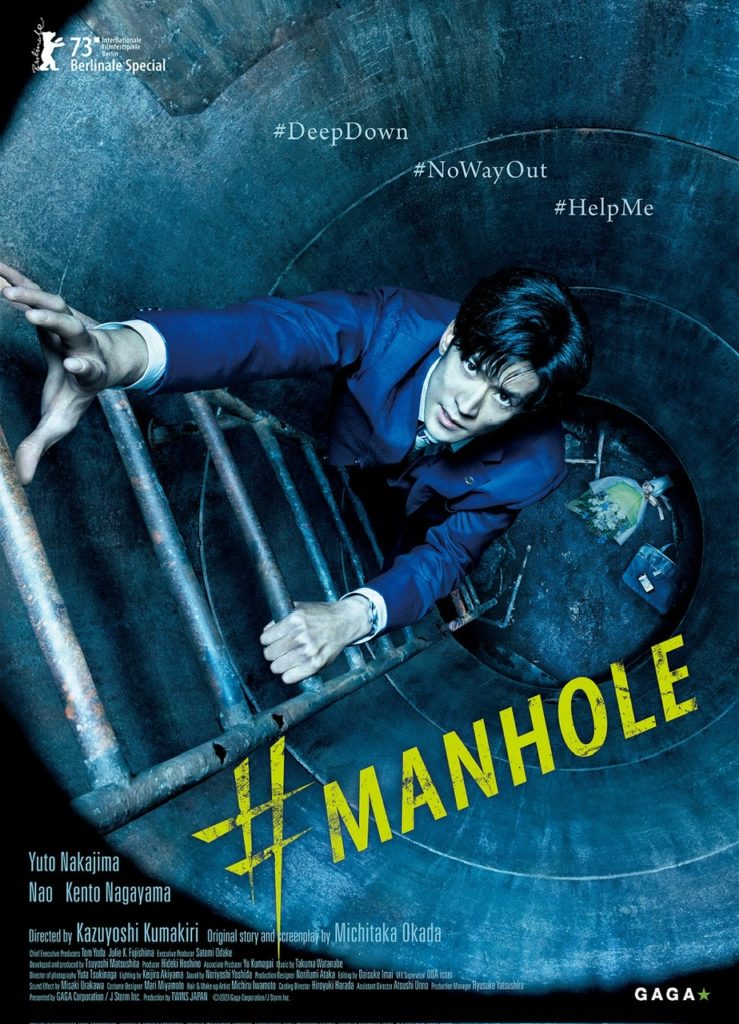
So what is #Manhole about? The name and poster immediately jump out; a desperate-looking man in the process of climbing out of a dark and filthy manhole tunnel. This is truly a high-concept movie, telling the story of a man who fell into an abandoned manhole on the eve of his wedding day. You might think it would be impossible to tell a suspenseful story set almost entirely in a manhole, but director Kazuyoshi Kumakiri would prove you wrong.
Yuto Nakajima brings his A-game as the lead, Shunsuke Kawamura, a man blessed with a successful career and a loving fiancée. He is well-liked by colleagues and seems to have lived a peaceful life. However, when he ends up at the bottom of the manhole, he must use all his wits to find a way to escape. With his only tools being a smartphone, a lighter and the clothes on his back, the movie delights in showing the unexpected ways Kawamura uses to get closer and closer to his goal of escaping.
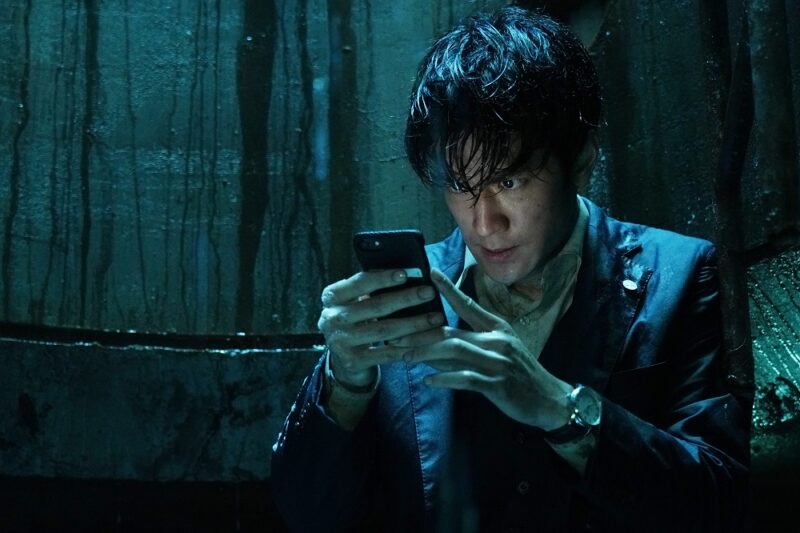
As the only onscreen actor for the vast majority of the runtime, Nakajima is entrusted with the heavy burden of single-handedly carrying the movie, a task that he handles deftly. Nakajima plays Kawamura not just as a charming and personable salaryman, but also conveys the depths of desperation and impotent rage that grips him in the depths of the metaphorical belly of the beast. Without giving too much away, there are some scenes that push Kawamura to the edge of human reason and emotion.
It is established early on that brute force will not be of any use to Kawamura’s escape, and he primarily relies on the various tools that a smartphone gives him to engineer an escape plan. It is a treat to watch as he schemes up various plans only for them to go wrong for some reason or another, forcing him to constantly be on his toes. As he tries method after method, he also gets closer and closer to the truth. Perhaps his predicament is not as simple as it initially seemed.
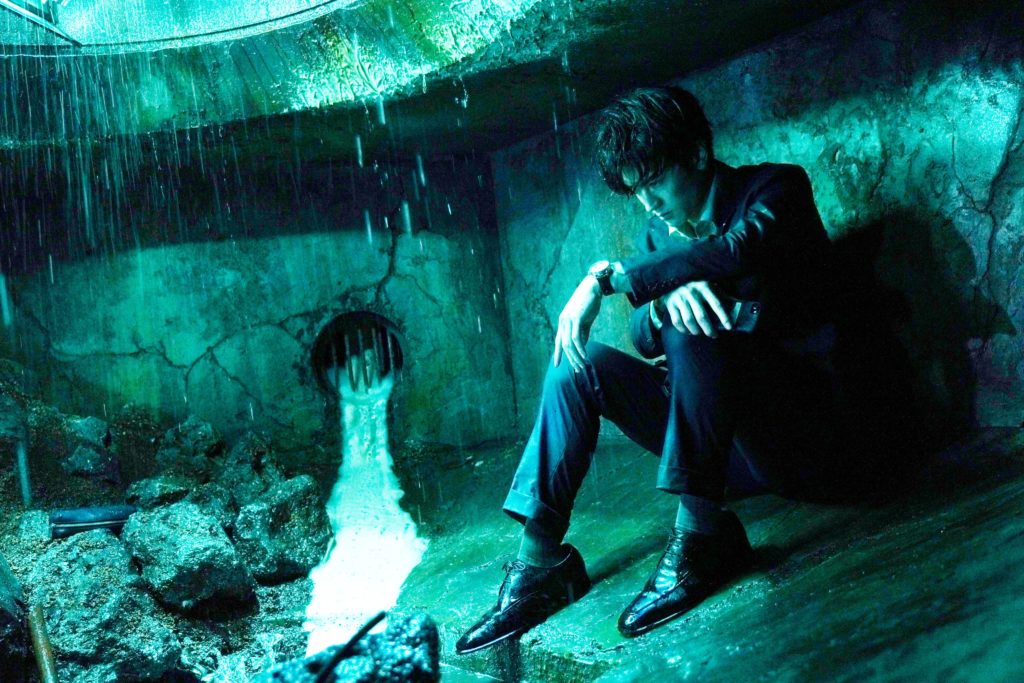
This is a movie that is fascinated with Internet culture, especially the mob mentality that overtakes online communities during matters of social justice or moral outrage. One of Kawamura’s plans is to leverage a dating app to rally people who could help him. He poses as a cute girl on the app, calling himself “Manhole Girl”, as he believes (correctly) that people would be more inclined to help an attractive girl as opposed to a man. As countless anonymous strangers come to his aid, the entire scenario becomes a surreal exploration of Internet culture. Some strangers joke around nonchalantly as if the life-and-death situation Kawamura is stuck in is all a joke. Others declare their undying loyalty to Manhole Girl, whom they have never met and have no proof is even real (a phenomenon dubbed “white knighting” in Internet slang). Some put their incredibly niche areas of expertise to use, such as triangulating a location based on the train schedules of an area, or the types of manhole covers used across Japan.
All of this calls to mind the real-life incident of a Japanese idol whose home was found by an obsessive stalker who deduced her location by studying her photos and figuring out the landmarks reflected in her eyes. A similar incident happens in the movie and is just one of the many disturbing incidents that explore the darkness of the human soul and the cost of obsession. In fact, it is obsession that the movie warns against, whether motivated by jealousy, revenge or the lonely idealisation of an unknown Internet figure.
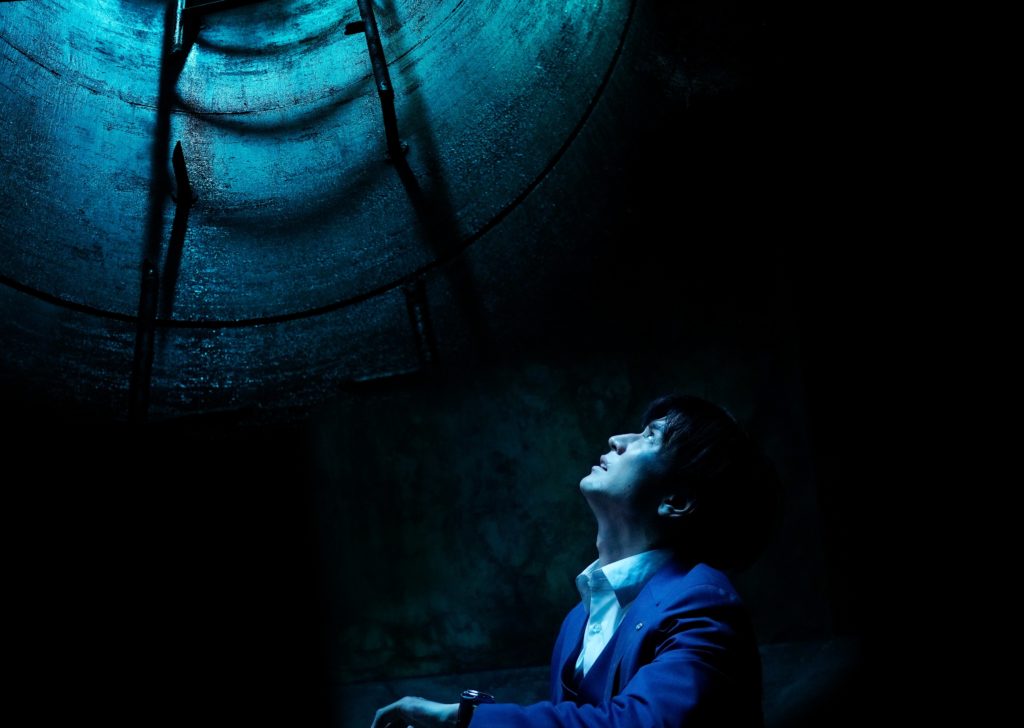
In real life as well, many public figures have attracted the anger of faceless Internet mobs. Whether deserved or not, it can be unsettling to see how huge swathes of a community can jump to a conclusion and begin pursuing justice (or perhaps more accurately, vengeance) on someone whom they do not actually know all the facts about. Such manifestations of “cancel culture” can wreak havoc on the lives of their targets and even cause them physical harm. These kinds of incidents are arguably even more common in East Asia, with Japanese celebrities in the past being driven to self-harm or suicide due to harassment by fans.
It can be said that all these societal issues are in fact the true horrors lurking in the depths of Manhole’s twisty plot. A word of warning to the audience: the movie is pretty gross. It does not shy away from showing the open wound that Kawamura sustains while falling down the manhole, nor does it avoid depicting the filth and refuse collected at the bottom of the manhole, perhaps as a visual metaphor for the decayed hearts of its characters. There are also a couple of jump scares. While not enough to qualify it as a horror movie, faint-hearted viewers may want to steel themselves.
#Manhole is not a perfect movie. The final section of the movie employs melodramatic plot twists that may challenge your suspension of disbelief a little. One character’s maniacally laughing, over-the-top villainy may seem overly familiar if you have watched anime or Japanese movies with “crazy” villains. Nevertheless, this is still an entertaining and original story that will keep you on the edge of your seat throughout.
Tickets for JFF 2023 will be sold at an affordable price of RM10 (except #Manhole) via GSC channels. All films presented will be in Japanese with English subtitles. A complete listing of JFF film synopsis, showtimes, and general information is available at jfkl.org.my/japanese-film-festival-2023 and gsc.com.my.
To read more BASKL stories like this, click on the links below:
